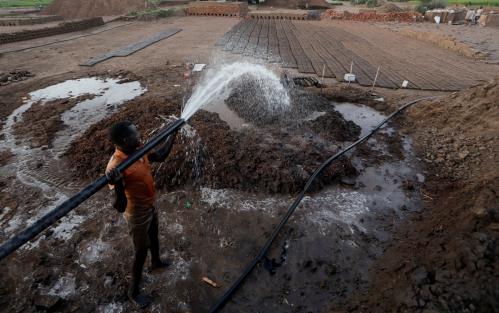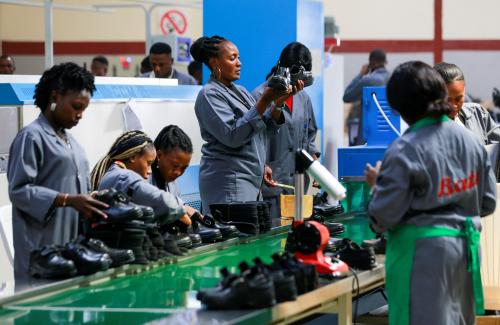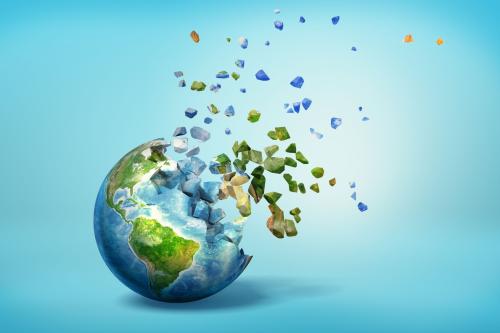International community condemns Mali coup, continues negotiating with ruling junta
On Wednesday, August 19, President of Mali Ibrahim Boubacar Keïta resigned after members of the Malian Armed Forces seized Keïta and Prime Minister Boubou Cissé, the culmination of months of protests and sporadic violence this summer between the government and what has become known as the June 5 Movement. The junta released Keïta on August 27, but the former president remains at home with limited liberty to leave.
Regional bodies, including the Economic Community of West African States (ECOWAS) and the African Union, have both denounced the move and imposed sanctions on new the Malian leaders. ECOWAS has indicated that it will lift sanctions only if the junta concedes power to a civilian government that will sponsor elections within a year. However, the junta has communicated its intent to follow a three-year timeline to transfer power. France, wary of losing ground to the jihadist insurgents in the north, has pushed to accelerate that timeline. France spends $800 million annually on Operation Barkhane, its anti-insurgency program in Mali; in spite of this presence, however, militants have contributed to the deaths of more than a thousand people over the last 12 months. The presence of jihadist insurgents, in addition to armed groups like local militias, has complicated the security landscape, drawing international forces like the U.N.’s third-largest peacekeeping force.
Response to July oil spill off the coast of Mauritius draws scrutiny and protests
On July 25, a Japanese bulk carrier spilled 1,000 tons of oil after striking a coral reef approximately 2 kilometers off the shore of Mauritius. The environmental consequences could be devastating: Over the past month, the island nation has witnessed 50 whales wash ashore. The next steps remain murky: The competence of numerous expert teams sent to assess and mitigate the damage has been criticized by independent experts. Inhabitants still have not been told what caused the accident, what its long-term impacts are, or how it will be rectified. On Saturday, August 29, upwards of 100,000 Mauritians (roughly 1 in 9 adults in the entire country) took to the streets to protest the oil spills off the shore of their country, a disaster whose response demonstrators claim has lacked transparency and accountability. Moreover, the oil spill threatens to drastically harm the wildlife and ecosystems central to Mauritius’ tourism industry, which is responsible for nearly 10 percent of the country’s gross value added and which was already weakened due to the pandemic.
The incident raises a host of legal and ethical questions surrounding who is responsible for compensation and who ought to decide the course of cleanup. According to the 2001 International Convention on Civil Liability of Bunker Oil Pollution Damage, the owner of the vessel, Nagashiki, rather than its chartered crew, Mitsui OSK, is responsible for the damage caused by the spill. The government of Mauritius is expected to ask for up to $1 billion in compensation, but unless Nagashiki is found to be guilty of serious violations of maritime law, statutes by the International Maritime Organization (IMO) will likely limit the awarded compensation to a small fraction of that amount. Moreover, despite being home to a number of famous research institutes, such as the Mauritius Oceanographic Institute and Albion Fisheries Research Center, direction of cleanup efforts have largely been led by oil and shipping industry-funded consultants, representatives from the IMO, and experts from Japan, whose first two teams reportedly lacked any coral, mangrove, or biodiversity scientists among them.
COVID-19 in Africa
Despite a number of policies designed to balance hindering the spread of the SARS-CoV-19 virus with protecting the livelihoods of African citizens, the COVID-19 pandemic continues to have cascading effects across the region. As of this writing, Africa has recorded over 1,275,000 cases and over 30,000 deaths.
Notably, in recent days, experts have heightened warnings that these relatively low case numbers might be deceiving, stating that testing shortages and other bottlenecks are likely preventing officials from knowing the true spread of the virus. Indeed, The Wall Street Journal recently reported that sub-Saharan Africa might be a massive “blind spot” when it comes to understanding the spread of the virus. Citing concerns over Tanzania’s prohibition of COVID-19 testing, the precarious situation of refugees and recent reports of massive case count jumps at refugees camps, and significant delays in test results, the WSJ posits that the extent of the virus spread in the region is largely unknown. Indeed, African countries average around 5,000 tests per 1 million people, compared to 200,000 in the United States. Furthermore, about 75 percent of all COVID-19 tests in sub-Saharan Africa have been conducted by just four countries—South Africa, Kenya, Ghana, and Ethiopia.
Although the virus has been slow to appear on Africa’s shores, the economic impacts of the disease have not been, as the global economy halted and Africa’s growing, largely informal, service-based economy was forcibly shut down to preempt the disease’s spread. On Wednesday, the United Nations warned that the economic fallout and massive job losses of the pandemic will push 47 million more women and girls into poverty next year, undoing many of the gains of recent decades. Indeed, women in sub-Saharan Africa and Latin America are predicted to be among the worst hit vulnerable citizens in the world. Women are not only more likely to work in jobs with few to no social protections but also are more likely to work in sectors hardest hit by economic lockdowns, such as restaurants and retail.
The Brookings Institution is committed to quality, independence, and impact.
We are supported by a diverse array of funders. In line with our values and policies, each Brookings publication represents the sole views of its author(s).







Commentary
Africa in the news: Mali coup, Mauritius oil spill, and COVID-19 updates
September 5, 2020